Gardening is a popular hobby among seniors, but did you know that it can also be a form of therapy? Studies have shown that gardening can have a positive impact on both physical and mental health, making it an ideal activity for seniors looking to improve their overall well-being.
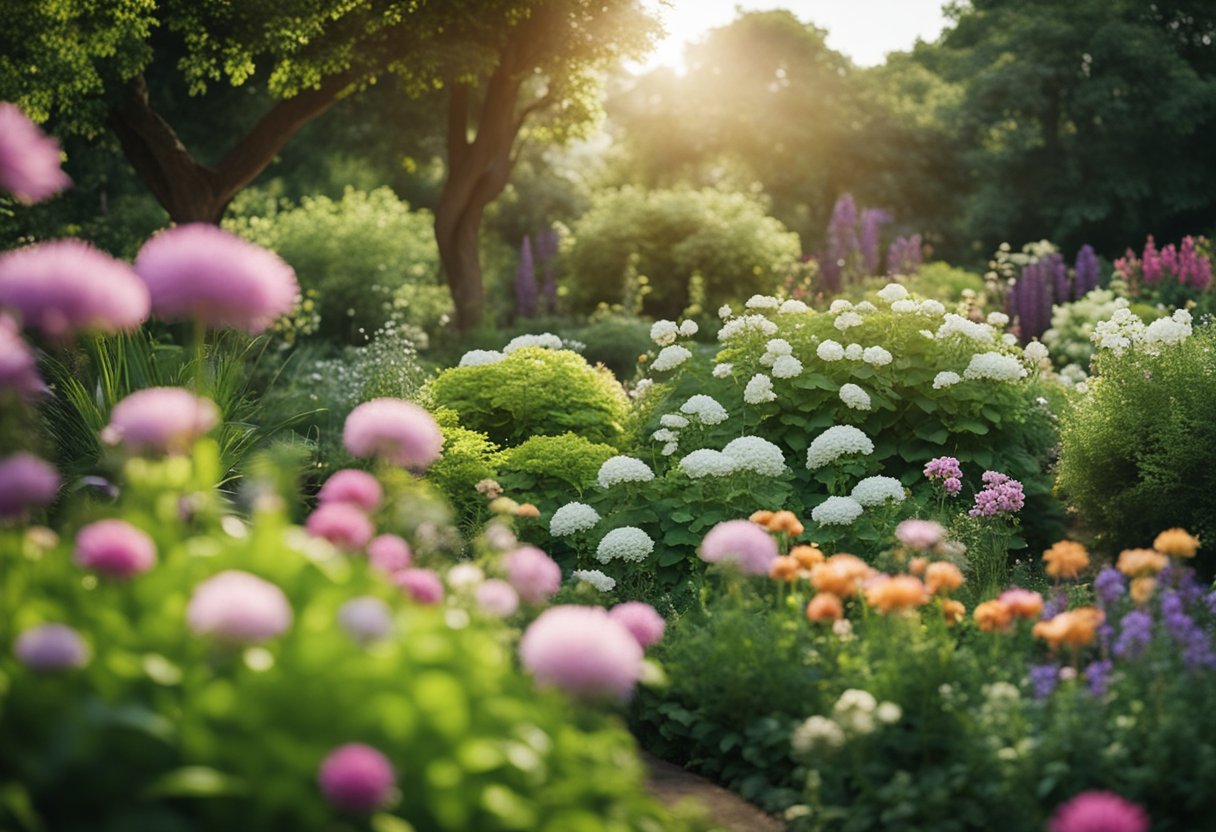
One of the main benefits of gardening as therapy is the physical activity it provides. Digging, planting, and weeding all require movement and can help seniors stay active and mobile. In addition, spending time outdoors in the fresh air and sunshine can also provide a boost of vitamin D, which is important for bone health.
But gardening can also have a significant impact on mental health. It can provide a sense of purpose and accomplishment, as well as a way to connect with nature and the environment. For seniors who may be experiencing feelings of loneliness or isolation, gardening can also provide a social outlet and a way to connect with others who share similar interests.
The Concept of Gardening as Therapy
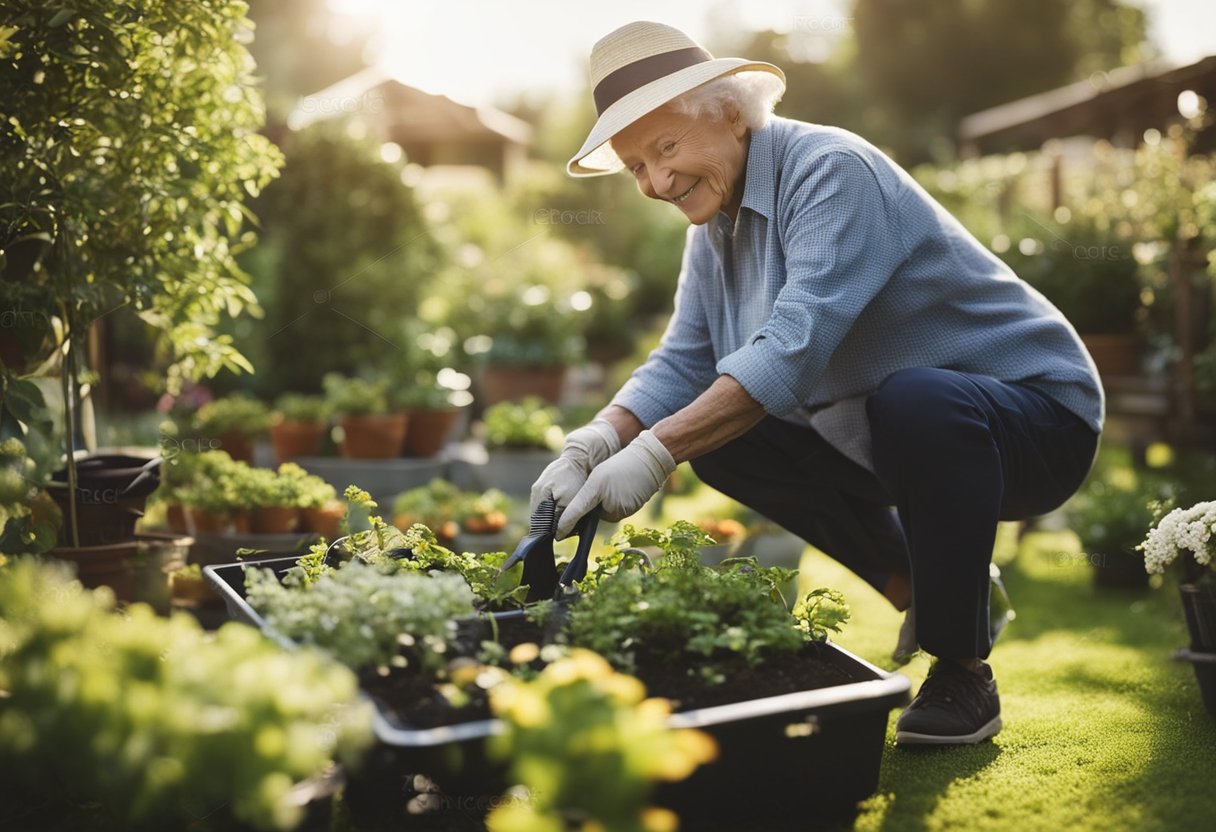
Gardening has long been recognized as a therapeutic activity for people of all ages. However, it is particularly beneficial for seniors who may be dealing with physical or mental health challenges. Gardening provides a sense of purpose, accomplishment, and connection to nature that can improve overall well-being.
There are several reasons why gardening is an effective form of therapy for seniors. First, it is a low-impact physical activity that can help improve strength, flexibility, and balance. This is particularly important for seniors who may be at risk of falls or other injuries. Additionally, gardening can help reduce stress and anxiety, which can have a positive impact on both physical and mental health.
Another benefit of gardening is that it provides a sense of accomplishment and purpose. Seniors who may be dealing with health challenges or limited mobility may feel a sense of isolation or lack of purpose. Gardening can help provide a sense of accomplishment and purpose, as well as a sense of connection to the natural world.
Overall, gardening is a wonderful activity for seniors who are looking for a therapeutic and fulfilling way to spend their time. Whether you are an experienced gardener or just starting out, there are many benefits to be gained from spending time in the garden.
Benefits of Gardening for Seniors

Gardening is an excellent form of therapy for seniors. It provides numerous benefits for their physical health, mental health, and emotional well-being.
Physical Health Advantages
Gardening is an excellent way to get exercise and stay active. It involves a variety of physical activities such as digging, planting, watering, and weeding. These activities can help seniors improve their balance, flexibility, and strength. Gardening can also help seniors get some much-needed vitamin D from the sun, which is essential for bone health.
Mental Health Advantages
Gardening can be a great way to improve mental health. It provides a sense of accomplishment and satisfaction when seniors see their plants grow and flourish. Gardening can also help seniors reduce stress and anxiety. It provides a peaceful and calming environment that can help seniors relax and unwind. Additionally, gardening can help seniors feel more connected to nature, which can have a positive impact on their mental health.
Emotional Well-being Advantages
Gardening can have a significant impact on emotional well-being. It provides seniors with a sense of purpose and meaning, which can help combat feelings of loneliness and isolation. Gardening can also help seniors feel more connected to their community. It provides an opportunity to share their produce with friends and neighbors, which can help build relationships and foster a sense of community. Additionally, gardening can help seniors feel more in control of their lives, which can have a positive impact on their emotional well-being.
Overall, gardening is an excellent form of therapy for seniors. It provides numerous benefits for their physical health, mental health, and emotional well-being. If you’re a senior looking for a new hobby or a way to stay active and engaged, gardening may be just what you need.
How to Start Gardening Therapy
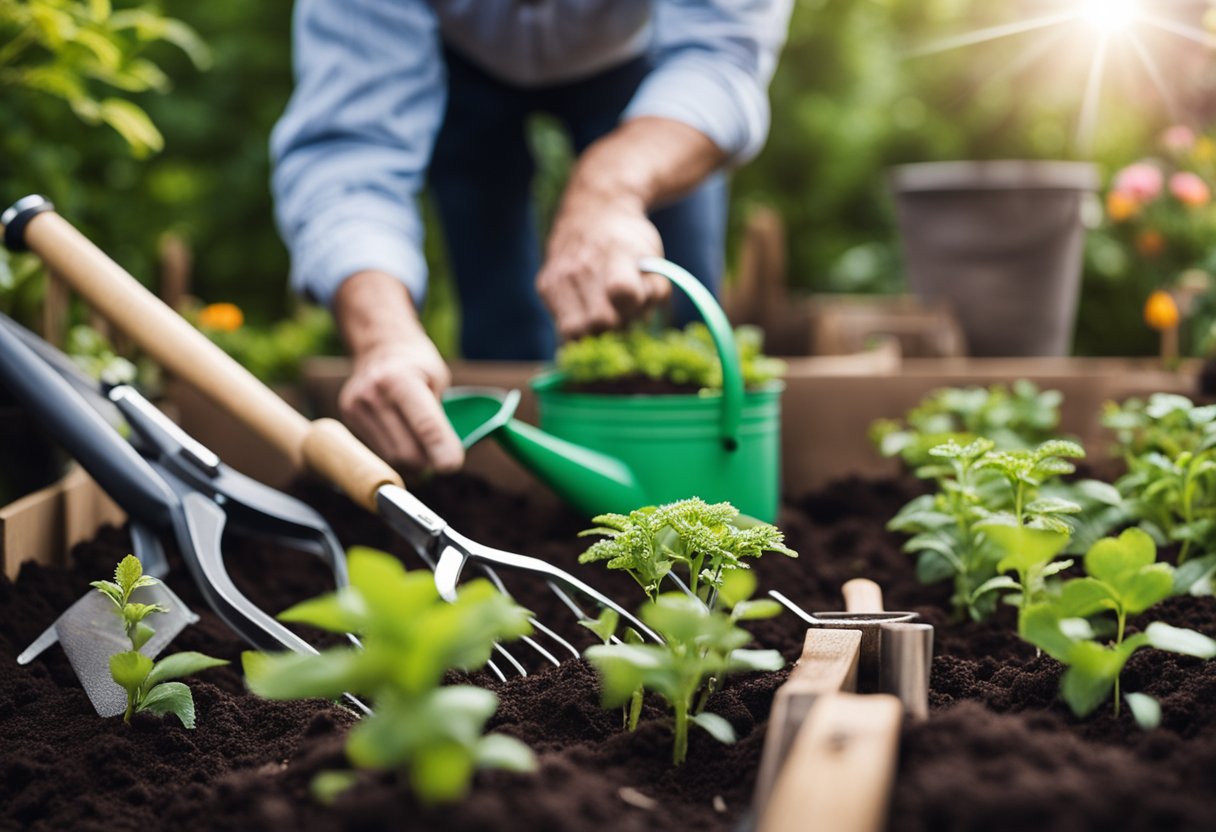
Gardening therapy can be a great way for seniors to improve their physical and mental well-being. If you’re interested in starting gardening therapy, here are a few tips to help you get started.
Choosing the Right Plants
When choosing plants for your garden, consider your physical abilities and limitations. If you have difficulty bending or kneeling, consider planting raised garden beds or using containers that are at a comfortable height.
You should also choose plants that are easy to care for and maintain. Some good options include herbs, vegetables, and low-maintenance flowers like marigolds and petunias.
Creating a Comfortable Gardening Space
It’s important to create a comfortable and safe gardening space. Make sure your garden is easily accessible and well-lit. Consider installing a bench or chair where you can take breaks and rest when needed.
You should also make sure you have the right tools and equipment for the job. Invest in a good pair of gardening gloves, a sturdy trowel, and other tools that will help you garden comfortably and safely.
In conclusion, gardening therapy can be a great way for seniors to improve their physical and mental well-being. By choosing the right plants and creating a comfortable gardening space, you can enjoy all the benefits of gardening therapy.
Safety Tips for Senior Gardeners
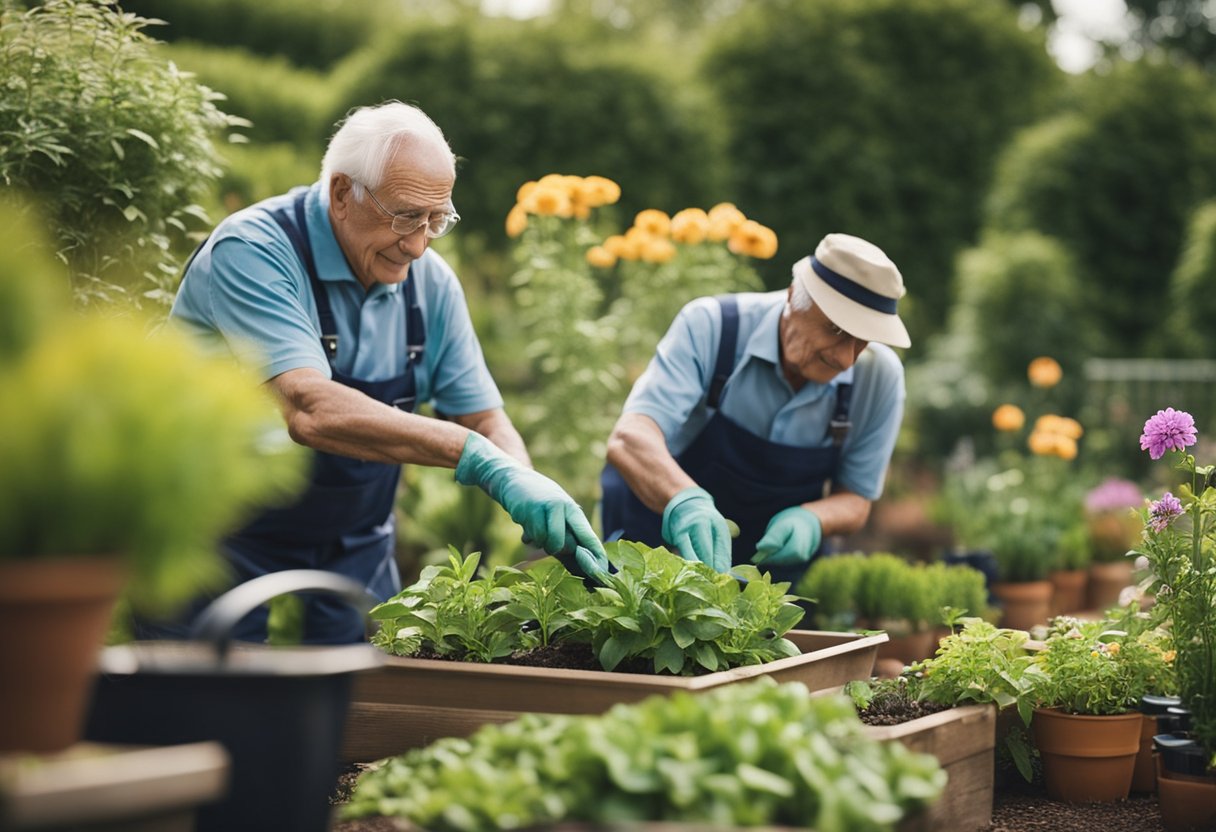
Gardening is a great way for seniors to stay active and engaged, but it’s important to take safety precautions to prevent injuries. Here are some tips to help you stay safe while gardening:
Appropriate Gardening Tools
Using the right tools can make gardening easier and safer for seniors. Here are some tools to consider:
- Ergonomic tools: These tools are designed to reduce strain on your joints and muscles. Look for tools with padded handles and angled heads.
- Lightweight tools: Choose tools that are lightweight and easy to handle. Heavy tools can be difficult to lift and may cause strain or injury.
- Long-handled tools: Long-handled tools can help you reach plants without bending over. Look for tools with adjustable handles to customize the length to your height.
Preventing Injuries
In addition to using appropriate tools, there are other steps you can take to prevent injuries while gardening. Here are some tips:
- Warm up before gardening: Take a few minutes to stretch your muscles before you start gardening. This can help prevent strains and injuries.
- Wear appropriate clothing: Wear comfortable, loose-fitting clothing that allows you to move freely. Avoid wearing jewelry or loose clothing that could get caught in tools.
- Use proper lifting techniques: When lifting heavy objects, bend your knees and lift with your legs, not your back. Ask for help if you need it.
- Take breaks: Take frequent breaks to rest and hydrate. Gardening can be tiring, so listen to your body and take breaks as needed.
- Stay hydrated: Drink plenty of water while gardening to stay hydrated. Avoid sugary drinks or alcohol, which can dehydrate you.
By following these tips, you can enjoy gardening safely and stay active and engaged in your golden years.
Community Gardening and Social Connections
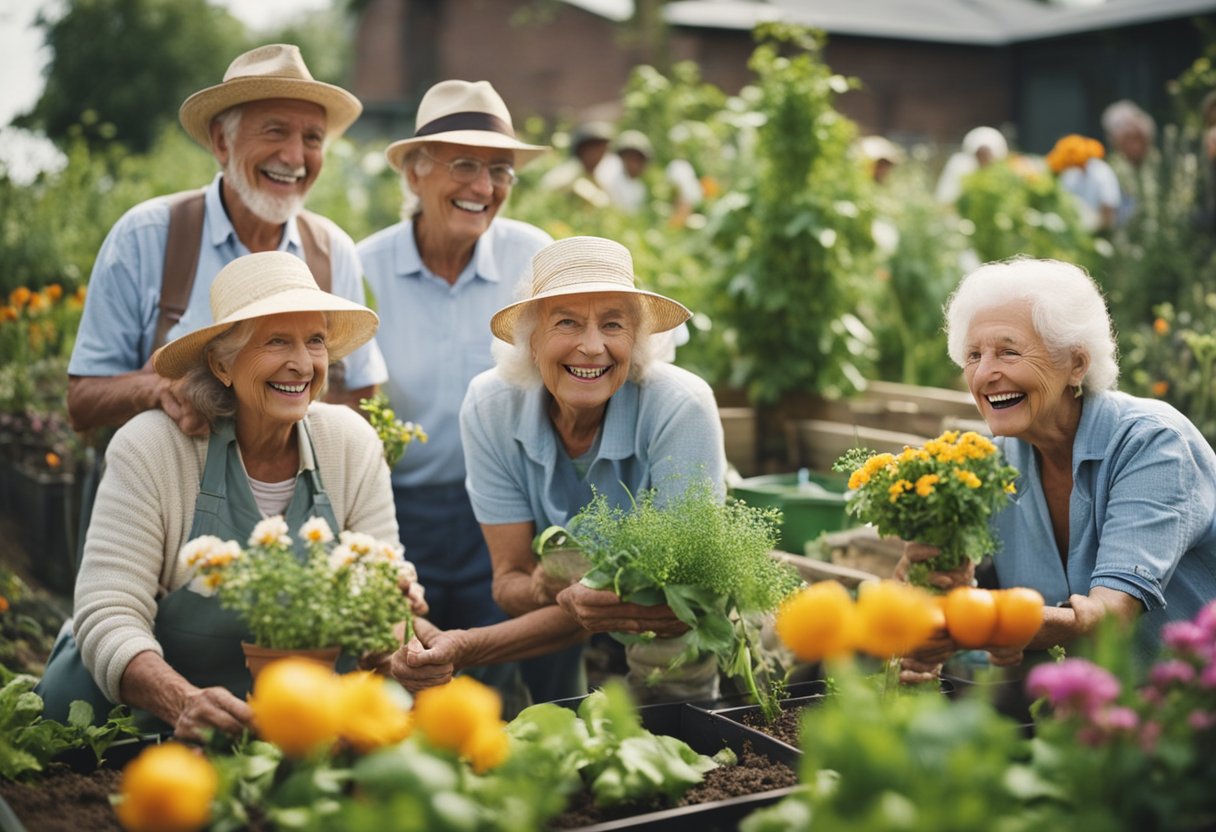
Community gardening is a great way for seniors to connect with others in their community while enjoying the therapeutic benefits of gardening. By joining a community garden, you can meet fellow gardeners who share your passion for gardening and learn from their experiences.
Community gardening can also provide seniors with a sense of purpose and belonging. By volunteering your time and skills to help maintain the garden, you can feel a sense of accomplishment and pride in your contributions.
In addition to the social connections, community gardening can also provide seniors with opportunities for physical activity and fresh air. Gardening tasks such as digging, planting, and weeding can help improve strength and flexibility, as well as provide a low-impact form of exercise.
If you are interested in joining a community garden, check with your local community center or gardening club for information on available gardens in your area. You can also ask friends and neighbors if they know of any community gardens that are looking for new members.
Overall, community gardening can be a fun and rewarding way for seniors to stay active and engaged in their community while enjoying the many benefits of gardening.
Case Studies of Successful Gardening Therapy
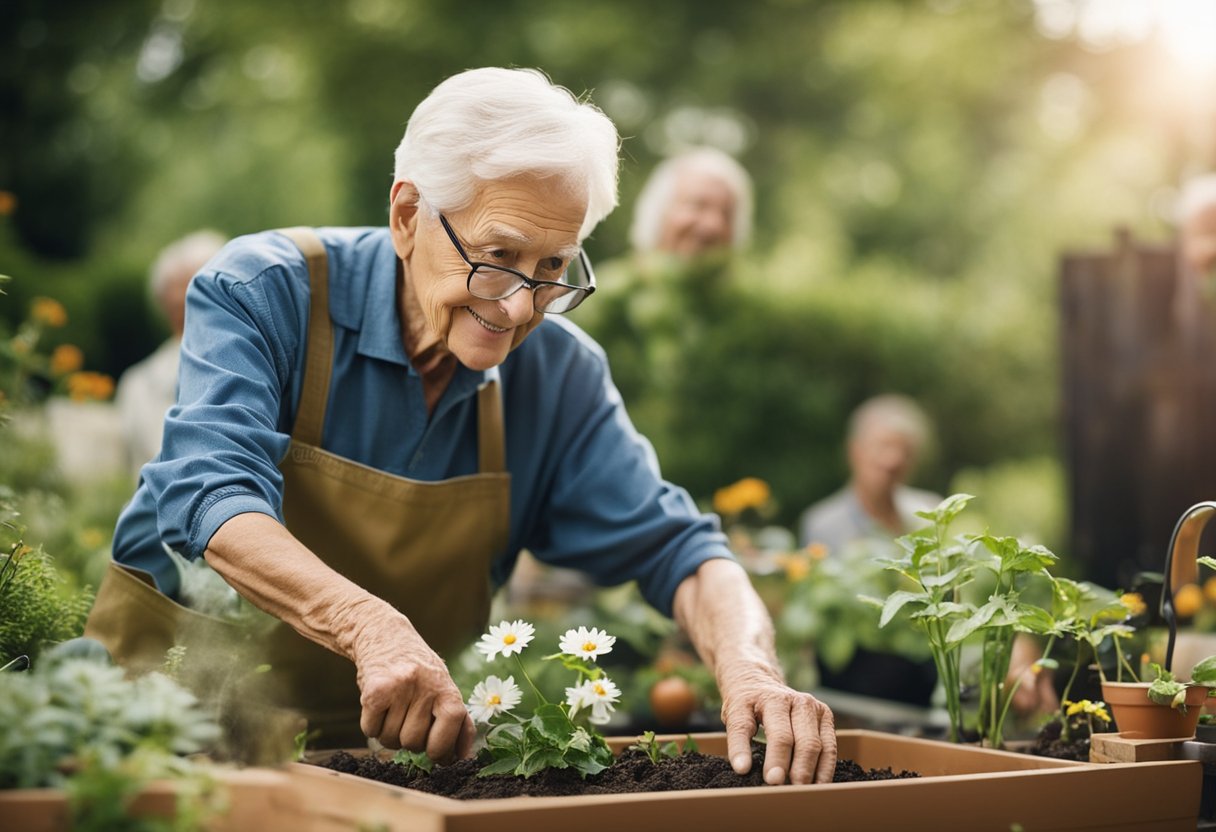
Gardening therapy has shown to be a successful form of therapy for seniors who are struggling with mental health issues. Here are a few case studies that demonstrate the effectiveness of gardening therapy:
Case Study 1: Mary
Mary is an 80-year-old woman who was struggling with depression and anxiety. She had lost her husband a few years ago and felt lonely and isolated. Mary started attending a gardening therapy program where she learned how to plant and care for flowers and vegetables. Within a few weeks, Mary started to feel more positive and less anxious. She enjoyed spending time in the garden and felt a sense of accomplishment when her plants started to grow. Gardening therapy helped Mary to feel more connected to the world around her and gave her a sense of purpose.
Case Study 2: John
John is a 75-year-old man who was diagnosed with Alzheimer’s disease. He was struggling with memory loss and was finding it hard to communicate with his family and friends. John started attending a gardening therapy program where he was given simple tasks to do in the garden, such as watering the plants or pulling out weeds. Within a few weeks, John started to remember the names of the plants and the tasks he needed to do in the garden. Gardening therapy helped John to feel more confident and gave him a sense of independence.
Case Study 3: Sarah
Sarah is a 70-year-old woman who was struggling with chronic pain and mobility issues. She found it hard to get out of the house and was feeling isolated. Sarah started attending a gardening therapy program where she was given a raised garden bed to work with. She was able to sit down and plant her own vegetables and flowers. Within a few weeks, Sarah started to feel more active and less isolated. She enjoyed spending time in the garden and felt a sense of pride when she was able to harvest her own vegetables. Gardening therapy helped Sarah to feel more connected to nature and gave her a sense of purpose.
Gardening therapy has been shown to be an effective form of therapy for seniors who are struggling with mental health issues. These case studies demonstrate the positive impact that gardening therapy can have on seniors’ mental health and well-being.
Rod Barnes
Rod Barnes has authored several websites with a wide variety of subjects.
He is a Vietnam Veteran with broad experience in business. He is especially interested in providing resources for our aging population.